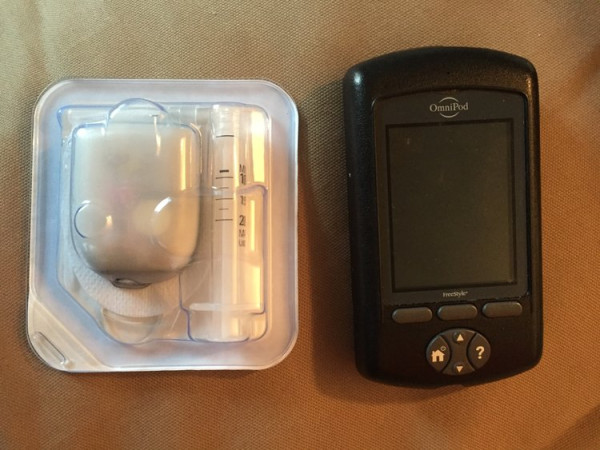Device Combo

Why did you choose a meter and pump?
The pump has helped reduce blood sugar spikes (highs and lows). While I do not like being attached to a machine, it helped me re-love my body. I had thought that my body was "acting" out and causing highs and lows. But the real problem was the variability that comes with balancing a few shots with a day full of activity, eating, and stress. Continuous insulin balanced out my blood sugars. After making the change [to a pump], I feel much better.
What are the trade-offs of using a meter and a pump?
I really don't like relying on a machine. I want to believe that I can treat my diabetes best. Unfortunately, I cannot give myself continuous shots. Additionally, the pump has failed (stopped working) at the most inopportune moments (i.e. 30 km into a 50 km cycling race; 8 miles into a bouldering field; 20 minutes after arriving at work in the morning). Nonetheless, a pump gives me enough control and confidence to begin those adventures.
Diabetes devices can produce a lot of information and numbers. How do you feel about this? What do you do with all the data?
At work, I am a GIS data technician. So unsurprisingly, I am guilty of testing limits, my own theories, and changing rates (basal, sensitivity etc.) in my lifelong effort to find the perfect balance. Instead of downloading the data, I look directly at numbers on the device.

This is my OmniPod.
How do you respond to people when they notice or comment on your devices?
Growing up, I did not know anyone else with diabetes. However, as an adult I have met two people with T1D and have worked at a kids' camp for those with T1D. I loved talking to others about diabetes that summer! Now I am happy to answer questions, but still have not been found to start a diabetes discussion.
How do you make the devices comfortable on your body?
This is hard. I am very sensitive and very active. Only about 1/3 of the time is the device comfortable on my body. However, I find peace knowing that my blood sugars are balanced and that I can do physical activities.
What helps you trust your devices?
I am one of those people who does not trust technology. I certainly would not trust someone else changing rates on my device. However, I have read the manual and have 26 years of knowledge about what feels right and how my body reacts to anything and everything. Therefore, I trust myself to use a device that is providing a constant, predictable rate of insulin. It is the only option.
What would you tell someone considering this same combo?
If your highs and lows are controlling you, a pump is worth the money. In a typical month, I spend more on healthcare than on housing. That's okay! I feel great when my mind is not cloudy and when I can exercise without being stressed. Diabetes is one piece of my life that I now have some control over. What do you prioritize?
What challenges do you have and how have you overcome them?
I carry extra batteries. Also, I use the vibrate alert setting when I'm at work!
More Wisdom

I chose to use a CGM and pump because they create a discreet combination that works well.
Mark


I Didn't Decide To Get A Pump Until My Doctor Said To Me, "You Are Giving Yourself The Best Care Possible While On Injections. If You Want Your Numbers To Get Better, The Type Of Technology You're Using Has To Change.
Chelsea


It's worth it to me, particularly when I sleep and wake up to see that the closed loop has gotten my blood sugar down, or suspended my insulin.
Justus




